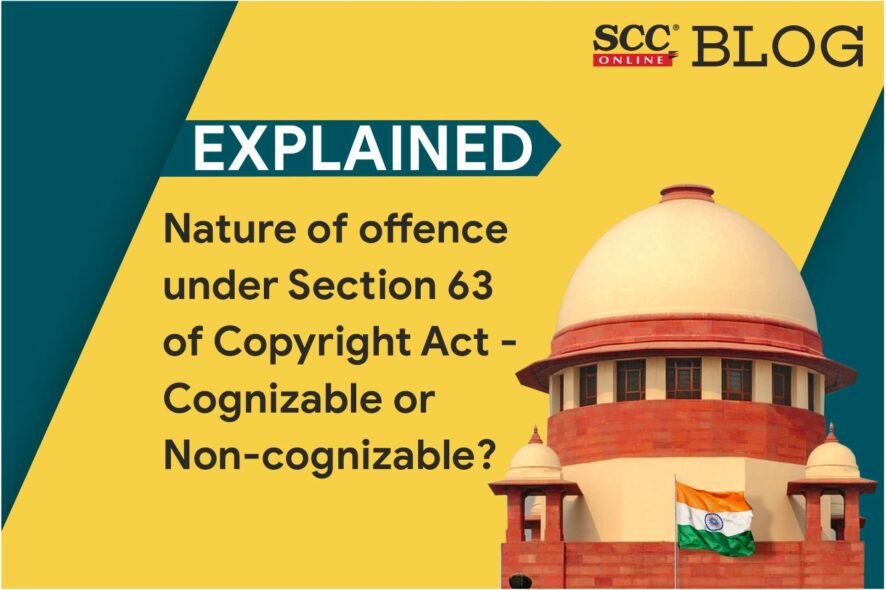Supreme Court: In a case where the Trial Court had held that the offence under Section 63 of the Copyright Act is a cognizable offence but the Delhi High Court took a contrary view, the bench of MR Shah* and BV Nagarathna, JJ has reversed the finding of the Delhi High Court and held that the offence under Section 63 of the Copyright Act is a cognizable offence.
For the offence under Section 63 of the Copyright Act, the punishment provided is imprisonment for a term which shall not be less than six months but which may extend to three years and with fine. Therefore, the Court explained that the maximum punishment which can be imposed would be three years. Therefore, the learned Magistrate may sentence the accused for a period of three years also.
Hence, considering Part II of the First Schedule of the Cr.P.C., if the offence is punishable with imprisonment for three years and onwards but not more than seven years the offence is a cognizable offence. Only in a case where the offence is punishable for imprisonment for less than three years or with fine only the offence can be said to be non-cognizable.
The Court, hence, held that the offence under Section 63 of the Copyright Act is a cognizable and non-bailable offence and that,
“Under the circumstances the High Court has committed a grave error in holding that the offence under Section 63 of the Copyright Act is a non-cognizable offence.”
[Knit Pro International v. State of NCT of Delhi, 2022 SCC OnLine SC 668, decided on 20.05.2022]
*Judgment by: Justice MR Shah
Counsels
For appellant: Advocate R.K. Tarun
For respondent: Senior Advocate Siddhartha Dave






